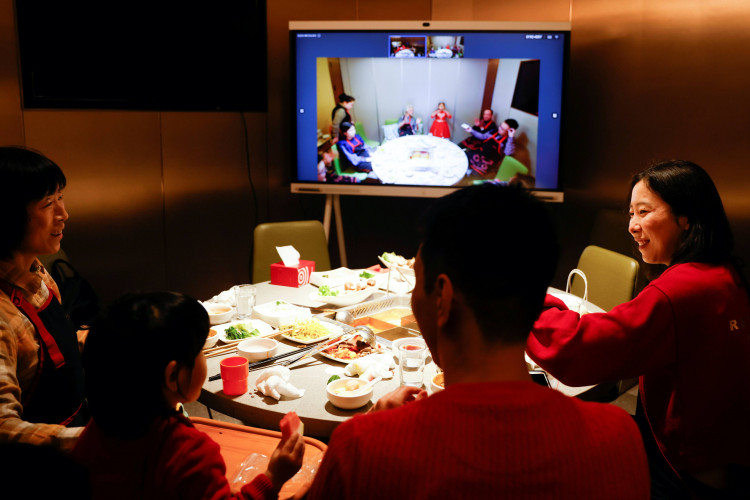Chinese retailers rang in the Year of the Ox with revenues over the holiday up nearly 30% from 2020 as consumers ordered food, home appliances and jewelry to their homes.
Online and offline sales by retail and catering companies reached $127 billion between February 11 and 17, the Ministry of Commerce announced on Wednesday, which presents a 28.7% increase from last year when China was during a pandemic.
The Lunar New Year fell over Valentine's Day this year and jewelers saw a 160.8% spike in sales while flowers and cosmetics were also being bought at a "particularly vigorous" rate according to the government.
Goods related to holiday dinners were also widely in demand compared with 2020 and the ministry recorded a 54.9% year on year increase in catering sales.
Still, the country has yet to hit pre-COVID-19 sales levels that exceeded $155 billion.
The pandemic's impact on Lunar New Year consumption has not been fully understood until now, as the government chose not to release holiday sales figures last year. Extrapolating from the latest figures, 2020 sales were roughly $98 billion.
"2020 was a highly unusual year that saw complicated domestic and international macro-environments especially due to the serious impact from COVID-19," the ministry noted in a January report.
Reflecting the demands of a house-bound populace, digital home appliance sales rose 29.9% year on year and some online vendors saw orders for fitness equipment double.
Pork, beef and egg prices remained stable over the holiday. But looking forward, analysts expect them to rise.
"Consumer price inflation is likely to spike in February as the New Year effect reverses," Capital Economics' Sheana Yue and Mark Williams wrote in a Feb. 19 research note. "Further ahead, favorable pork price base effects will nudge up food inflation."
On Thursday, Chinese markets welcomed the Year of the Ox with a bullish open. The Shanghai Composite Index rose 1.18% while the Shenzhen Composite Index increased nearly 2%.






